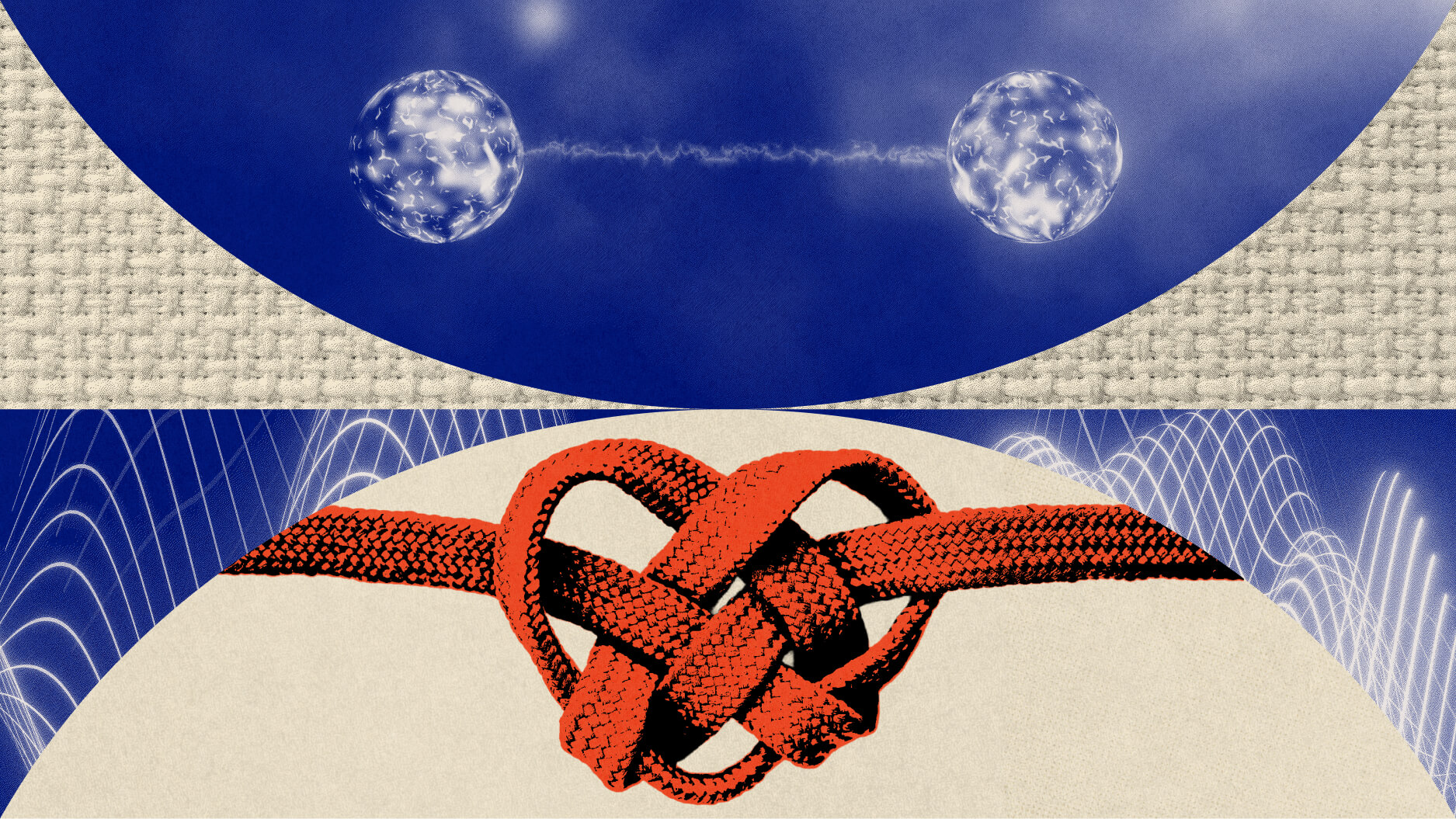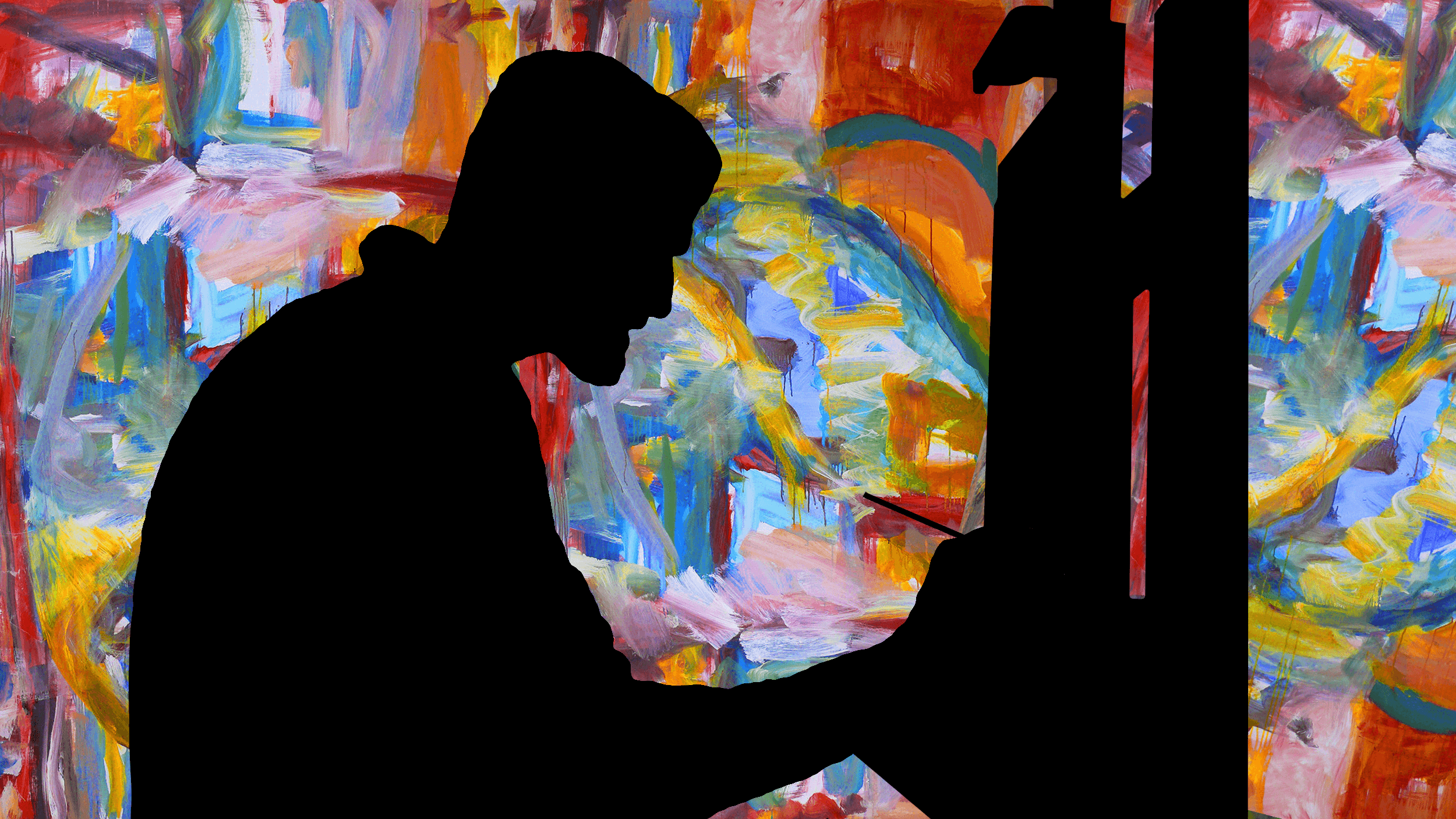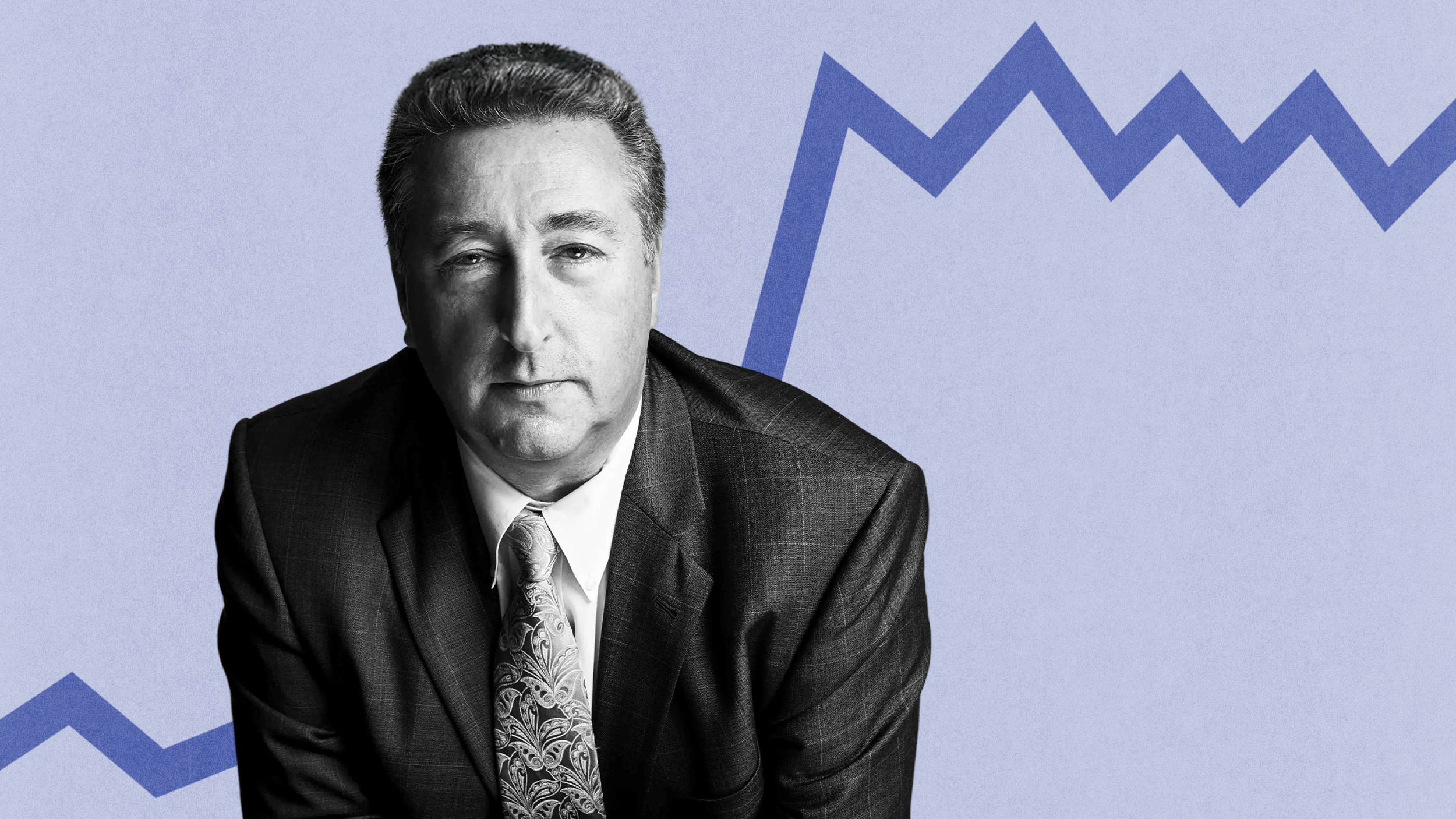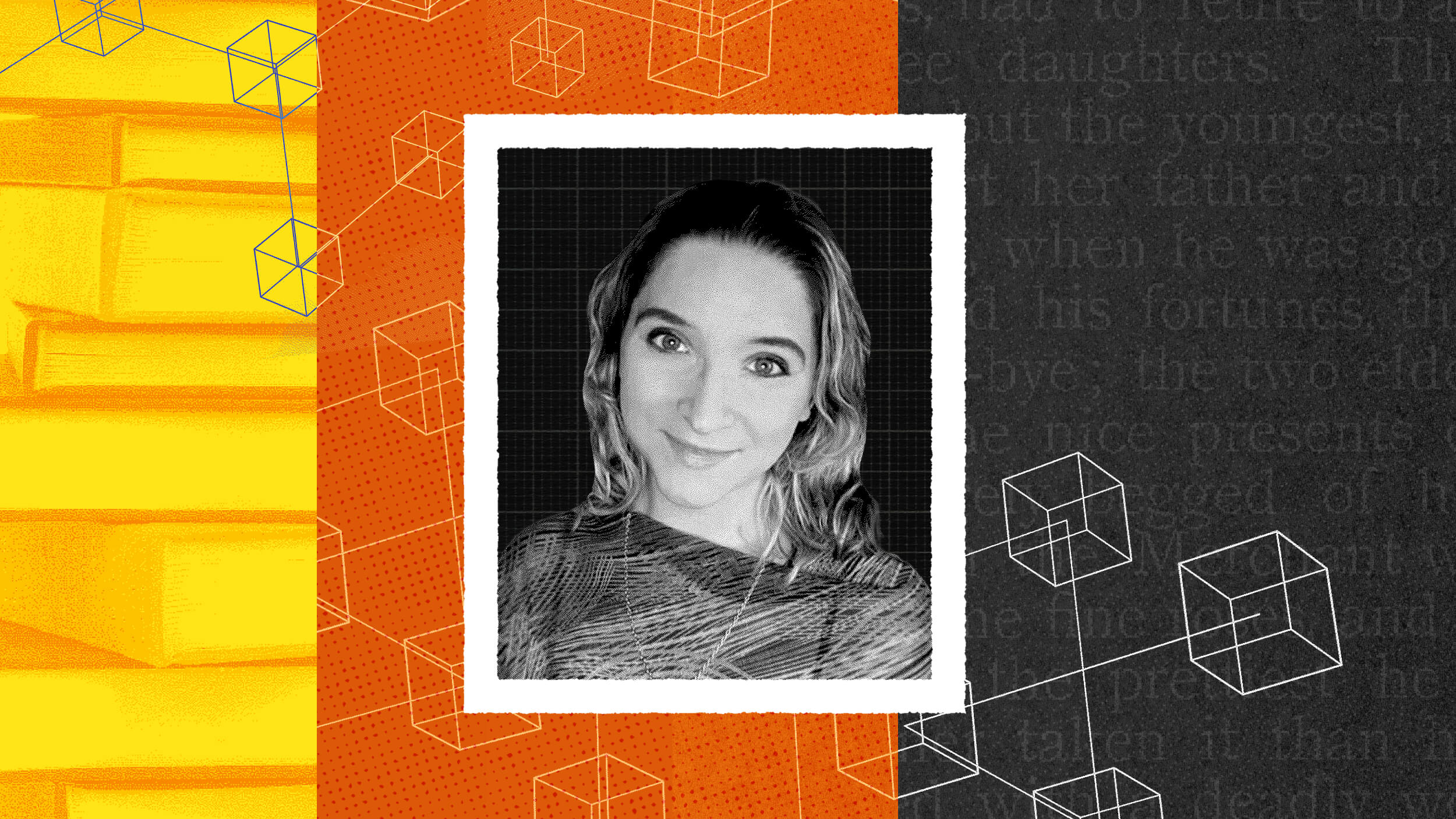A conversation with the classical musician and New York Philharmonic’s first Artist in Residence.
Question: What was your childhood like?
Thomas Hampson: Well, I grew up in the northwest, in Washington state, in the Tri-Cities. I grew up in an extremely musical atmosphere; my mother was a wonderful musician and organist and pianist, and light opera. I have two older sisters, and we were raised in a very musical environment and we all studied piano and raised in a parochial school system. So there was a lot of music and singing. I never really thought about one not singing, as a person. I've always sung and made music; played the trumpet and played the drums and played the piano and all of that. So the music was just self-understood.
But I never really thought about it as being a profession until quite a bit later in my life, in fact, studied other disciplines, literature, political science and have a degree in those studies. And then studied vocal repertoire and musical studies and have a Bachelor's of Fine Arts in Music. It was quite a bit later in my early 20's that I thought, "I'm young, and I can try this and see what the profession." The study of music and the profession of music are in a lot of ways two different things. That became clear in my early 20's.
My operatic debut was in fact, in Spokane, Washington. I was 19-years-old, I think. And by then, I was getting a lot of encouragement that I had a proper voice and could be properly trained, but still I was very much not thinking of going into operatic singing as a career. The local production was "Hansel and Gretel," and I sang the father.
Shortly thereafter, I went to Los Angeles and actually, Santa Barbara to the summer program at the Vision Academy of the West, and that's where I really started to see and study opera in scenes and in, sort of, full context. Most people in rural places in this country start probably their association to opera by singing "Arias." Mainly for competitions, and then trying to find money to study and this is until you get quite a bit farther in your studies and university before you probably are going to be involved in opera in some ways. I was actually in two opera corps before I ever saw a full opera, which was rather extraordinary.
Question: What was the first opera you saw?
Thomas Hampson: The first opera I ever saw was "Rigoletto." In Spokane, a visiting troop from Seattle, and then the other opera I actually went, I got a ticket and went, was Sir Galant Evans singing "Falstaff" in Seattle. That was extraordinary. The first two operas I was in with a chorus of "Cosi Fan Tutte," by Mozart, and "Le Barbier de Seville," of Rossini.
You tend not to forget being terrified. I enjoyed it a great deal and of course, being in a chorus was a lot of fun because you knew the people you were working with, but it seemed to be -- it was very exhilarating to me. Not because I wanted to be on stage and performing and all that sort of thing. That's not ever really been my instinct, as it were, but opera is such a complex environment of so many different things that are going on. The scenic atmosphere, the psychology of the characters, the historical perspective of the opera, the music, the structure of the music it's this amazing three and six dimensional mosaic that happens in real time. That was very clear to me at the very beginning. It just completely fascinated me.
Question: What’s the most challenging role you’ve played?
Thomas Hampson: Well, that's a tough question. You get always asked for challenging and favorites. They're all challenging. And I don't mean that as a glib answer. But every opera, because every opera is a unique slice of a particular perspective, historical perspective and psychological perspective if not musical style, and so forth, they all present different challenges. Some can be musically very challenging, some can be psychologically more challenging. Certainly something like "Doktor Faust," by Ferruccio Busoni, was a very, very challenging part for the character and for the music. The stamina necessary in some operas is the challenge; "Armandrica," of Richard Strauss, or "William Tell," or some of the Verdi Operas, “Un ballo in maschera" or "Don Carlo." There are physical elements to these things that are very, very challenging. So, there is always something that requires a pretty specific amount of energy and attention.
Question: What is the American song?
Thomas Hampson: The American song, and my preoccupation, or fascination with the song is really this specific dialogue of poetry and music. When we speak of American Song, we really are speaking more of song in America because as we well know, America is a nation of many races and many cultural influences. And the astounding fact about arts and letters in America is how creative we've been. I'm not sure we give ourselves as much credit and attention to how consistently and massive creative we have been in telling our story, or telling what it is to be alive now, as Copeland so beautifully told us that only composers and poets can do this. That's all they really can do is say, "This is what it's like to be alive now."
When we look at the arts and letters in America, especially if we look at poetry, and poetry set to music, this dialogue, we have this very powerful beautiful, eclectic, diary, or narration of being in America, being American, participating in America, becoming more of America and also as an American, the American creative spirit, which is quite interesting. Our composers and poets have spent more time writing and thinking and speaking out of what it means to be a composer or poet as well as to be an American, or a composer or poet In America; both relationships. It's a very fascinating story that's being told that is wonderfully associative and reaches people across all walks of life and all points of association to their cultural history. This is what drives me in American Song especially.
The issues of poetry, and music, and dialogue with one another is the essential thrust of any song. The breakdown becomes the epoch, the language, the cultural tapestry from which it's echoing, if you will. I often say it's the eyes of the poet's and the ears of the composer's. This narration is what fascinates me endlessly.
Question: How has the American song evolved?
Thomas Hampson: Well, the fascinating thing about poetic development or language development. If you take Whitman in an American context it's fascinating. This guy begrudgingly gets sent off to criticize Italian opera, or be the critic in the audience, or at least some sort of reporter of the events; doesn't know much about music, doesn't like music very much. Fast forward 20 years and he's writing "Leaves of Grass" and fast forward another 10 years and he's writing about having written "Leaves of Grass," and says, "Without my experience in music and Italian opera I would have not found this new way of expressing language." And then fast forward again another 20 years, and you have other composers saying that without Walt Whitman's use of language we would have never developed musical style or form to be more flexible to the actual expression.
And that’s the thrust of the idea that, as we see song develop, this dialogue of poetry and music, both searching for the proper metaphor of the actual human experience, if you will, you see this, especially in American arts and literature, you see this driving passion to, as Emerson said, "Let the substance that needs to be expressed tell us how to express it, rather than try to fit it into a form." So, that's probably the most salient difference between Whitman and Foster, or better put, the middle of the 19th Century as we move through the 20th Century we see a deepening of this very, how can I say it, deep relationship of exactly what the metaphor is and what each word stands for and the word finding it's own place in it's context and in it's style versus having to fit some sort of iambic pentameter or something like this.
Question: What’s your favorite poem?
Thomas Hampson: The one I'm singing. I don't recite a lot of poetry. I like to read poetry and I love to hear a great voice or a great mind recite poetry. I don't walk around the house regaling people with the last poem. Having sung so many songs in so many languages, there are so many beautiful moments, I'd have to -- this will certainly be edited out. I'd have to think long and hard to -- some of my favorite poetry is in German, some of the very brief moments of reflective thought from Walt Whitman, "Reside With Me." They're all somehow part of the song literature at this point in my mind.
Question: How does technology today affect the interaction between musician and audience?
Thomas Hampson: A couple of years ago, 2006, there was a very profound book that came out called, "The Long Tail," which essentially among many other facts and theories in the book said, "The world we now live in is providing access points for people to create their own market, or their own boutique." And I think this is the profound paradigm shift in especially classical music because classical music has always been preoccupied with identifying a particular quadrant of the public that will buy, or be interested in this recording or this performance. When in fact, now a world of podcasts and video podcasts, and let's not forget that in 2007, the word podcast was invented and accepted into the Webster Dictionary, or something like that. It's an extraordinary fact.
So we have the ability through the digital media, which is exploding every week into a different form and getting more ubiquitous, more simple. Both for people producing or for better expression perhaps, making permanent that which they do and those people accessing that and choosing to have that. It is extraordinary the kind of research they are doing and finding, not just in iTunes, but in all sorts of fields of how people access music, what kind of cross genre access people are building for themselves. And you would be surprised how many people that are very passionate about classical music are deeply involved in Hip Hop. You would think Jazz would be the natural associative, but it's extraordinary what kind of crossed-genre associations we are finding in digital media. And even as I'm talking about it, I find myself speaking very much more about how people are accessing that which, what I do, rather than me being preoccupied trying to market something that I do to them.
So I think this shift has been very fundamental and very profound and probably very positive. It has been very difficult for the classical music industry and that seems to make sense to me because we spend so much time identifying in the classical music world, identifying not just the best, the most complete and articulate way that music can say what it has to say. And that, by definition is somehow antagonistic to the ambiguousness of the media world that we are building. We are just at the beginning of this confrontation and I think we'll find a way to meliorate those issues. But I think it's a very interesting conflict.
Question: How do you experience music?
Thomas Hampson: That's a very important question. Most people probably ingest their music as a background. In America, I know -- and that was one of the geniuses of Apple and i-Tunes and Steve Jobs specifically. This astounding fact that most Americans, I think ,something like 40% of all music listening is done in the car. Boom! What an idea!.
Me personally, I enjoy background radio of various genres, I am an audio file so I have a very serious sound system in a room where I do like to go and close the doors and just enjoy that moment either because it's technical proficiency as an electronic medium, or because it's a spectacular performance. Being a classical musician I'm fascinated with how my colleagues, not just singers, but every musician finds ways to express something else or something new or the same ol', same ol' in classical music. I'm always in dialogue with other musicians at least orally, if I can't be with them and a lot of dead musicians as well. I've learned a lot from dead people on recordings.
Question: Are there days you yearn for silence?
Thomas Hampson: We've become in society now so focused on that which we do, which is our life that we make in our professional, or profession, or how we pay for our random -- the working side, and then there's the other side. Our lives have become sort of three pieces. There's the grind, there’s the period of non-grinding, and then there's the period of sleep. And we're in continual negotiation for those pieces of pie. What become problematic is that non-working time is now a time that is either a baseball game or the museum, or a concert, or a film, or a movie, or TV, or family, or vacation... you see?
Whereas, work has solidified into some sort of, "Well that's what I do to make this part of my life possible." And I think this is a very, very dangerous schizophrenia that we need to treat. To me, that's one of the great areas that arts and humanities and liberal arts education ameliorate. It ingratiates that the working and the non-working time has a common third ground in there that is teaching one or the other, that is amusing one or the other, I think one of the great things behind game theory, or game development, especially in education now, apropos, digital and new media, is finding a better, easier, more intuitive way to learn that takes that away from the drudge and the structured work part and puts it into the reflective, "I'm alive, I'm a human being, I'm not working right now," part. And I think that I would like to see music and arts and humanities become more able to even the color spectrum of the fan of activities. If that's really successful, is there a time where you just don't have any of that anymore? Maybe not. But your balance and your choices will be more healthy and more interesting.
Is there a time when I just turn it off? Yes. There is a time when there's no music, although there is rhythm. I find that on the golf course, although sometimes the rhythm that I need in my swing, as a musician, I find it in another melody, but I'm really stretching right now. There is a time when there's just quiet. You might be interested to know that it is very difficult for musicians to read books with music in the background. We don't do that so much. I shouldn't speak for everybody, but it is very difficult for me to do that. So, I tend to separate my activities.
It’s very complex. I probably should -- it would be an interested dialogue with someone why that is. Because some music certainly is not important, and maybe there is a certain,” I could turn on the radio." But then it's distracting and it's just another noise element, which I don't particularly want. When I hear music I want to engage in it. Even if I engage in it very quickly and turn it off in my mind. If I'm in an elevator, clearly I don't want to be dealing with that, even if it's Mozart. In fact, especially if it's Mozart. I don't think Mozart belongs in an elevator.
I would like to see us return to a deeper profound relationship experience in the concert hall than just, "I think I'll go look at that." And I think that's part of the digital world I was speaking of earlier that I like very much. We are building such wonderful access points that people have a deeper relationship to the music that is being played in the opera and in the concert halls and in the recitals, or the opera. Going to something because it's an amazing event, and something you've never heard before is part of it. And I don't take that away from anybody. But there are many more rivers underneath that, or wells underneath that river that you're participating in, it's like going to the museum and seeing wonderful pictures that are startling and beautiful and renaissance painting as an extraordinary world and you never need to know anything about it and you can go and gawk in wonder. And a sense of wonder is the most important part of all of it.
But then, if you actually do take on of those little hearing things, or you do know something about the iconography of color, or the iconography of posture of simply the iconography of the storytelling applied in renaissance painting, then all of a sudden you have a completely different world that is ingratiating your imagination. It is making you a richer person and you are participating in a much longer dialogue with historical perspective that enlightens your next steps in today's world. It's exactly the same thing in classical music, precisely the same thing.
Topic: The Devil is in the Detail
Thomas Hampson: The devil is always in the detail." There is so much that goes into a career that has nothing to do with the preparation with having a career and also has everything to do with how well you prepare in your earliest of days. My only advice as an experience older singer is about singing, it isn't about music. To have a career in music is a completely different question and leads to other kinds of advice and other kind of experts. All you can do is someone planted in my mind very early on, this wonderful truism called, "Fortune favors the prepared mind."
So all i really can say to a young person who would like a life in music, first and foremost; be clear about what life is. Because whether I am singing to three people or 3,000 people, I'm a happy person because I'm making music.
Be passionate about being a musician. There is no limit to how hard you must work and how detailed you must be in every facet of what you do, either as a singer, as a musician, or as a person. Discipline for me is the ordering of the random. It's being very specific about what you do at any particular time. If you're 20 years old and you're learning, learn. If you're 30 years old, you've learned and you're starting, start. If you're 40 years old -- you got the idea.
And as a career advice, be prepared for that which you will be asked to do, and you'll be okay. Stay healthy.
Question: Do you still get nervous for performances?
Thomas Hampson: Oh yes. I think nervousness -- a heightened sense of nerves and attention is a very healthy thing for a performer. It is an artificial environment that you are going into whether it's concert or recital, or stage. When I know something so well, I've done it so often, and you kind of walk out for Tuesday night's performance, or you feel like that, that makes me more nervous then being geared up. A little bit like race horses. There is that added edge. In the same way that the horses are always very difficult to get into that lineup, the worst period of my life, the worst time of my life is the 10 or 15 minutes before I go on stage.
Once you go on stage you’re essentially creating the world that people want to participate in. The worst thing you can do, advise to a young musician, is go out on stage with the idea that you're going to communicate something you've learned and if you do it really well, they'll approve. If you go out in an approval process, you will be so nervous and so preoccupied you'll never get to the heart of what it is you want to make music with. People pay vast sums of money to participate in the world of recreated imagination that we spend our waking hours recreating as well as we can, each one of us. That's a blessed life if you're asked to do that. But it's also, I think, a very natural and very beautiful process, both for the public to realize they are going to me -- they're coming to me, versus me as an artist trying to convince them of something. I'm not trying to convince anyone of anything. All I can do is be it, that which the public, or whatever, audience it is, wants to participate in. That may be the most important thing that I could possibly offer as a perspective for advice.
Question: What keeps you up at night?
Thomas Hampson: What keeps me up at night? I'm a night owl. So, studying is what keeps me up at night. What keeps me up at night is that I love to sleep because I need the rest, but I hate to miss something. I would love to be able to take a pill that I wouldn't have to sleep. So, sometimes what keeps me up at night is just that I don't want to say good-bye to that day. And at the same time, I love to start the next day. So it's a -- I think I'm essentially a very unsettled person.
Recorded on October 28, 2009





